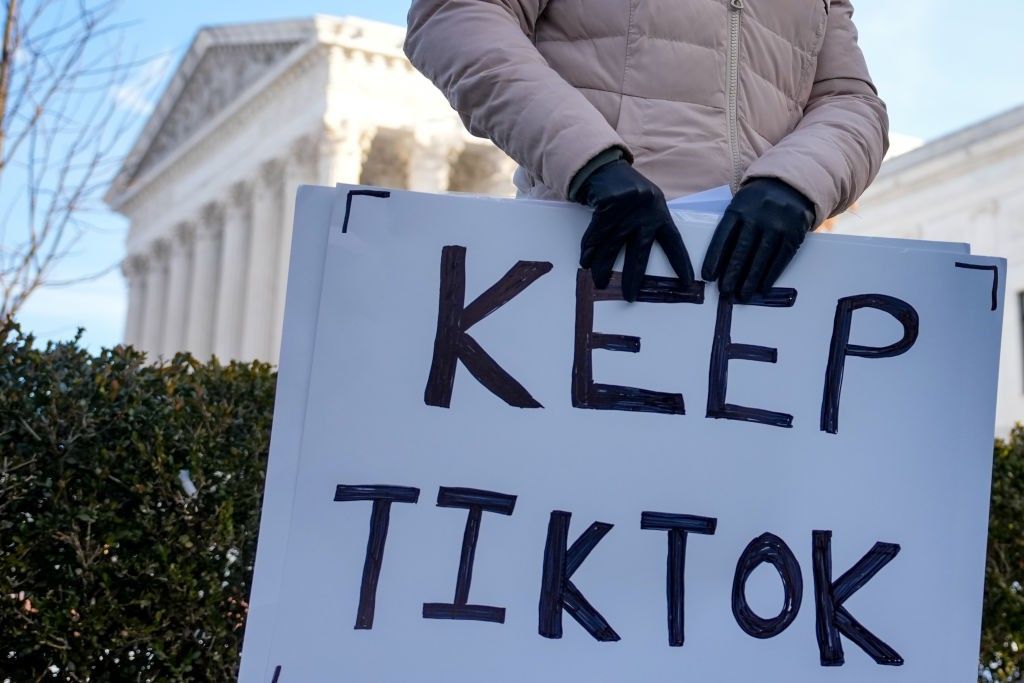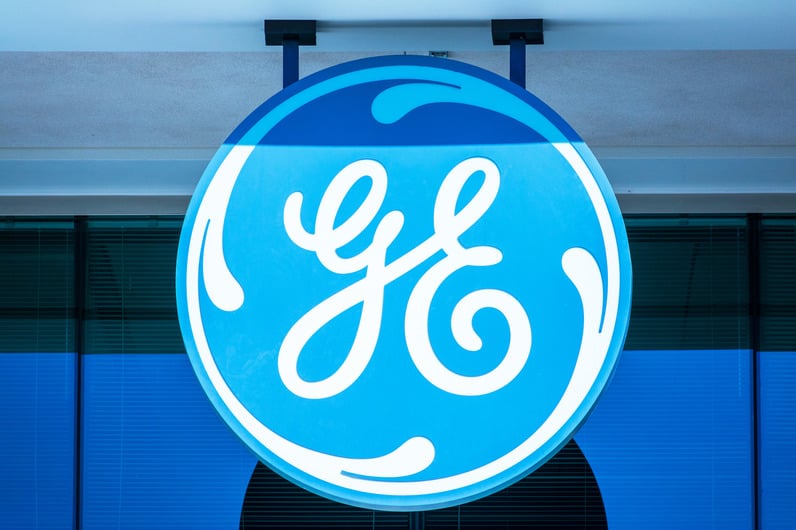In the run-up to the 2016 United States presidential election, a set of mainstream Republicans worried about the rise of Donald Trump kicked off what came to be known as the “Never Trump” movement.
In essence, they were making clear that they were so fundamentally opposed to what Trump – a property baron-turned-TV personality – stood for, that they would never vote for him.
Now, a new “Never Biden” movement is starting to erupt in the US as the country heads towards the 2024 election, shaped in good measure by President Joe Biden’s response to Israel’s war on Gaza.
On social media, it has taken the form of a hashtag – #NeverBiden. But with some donors signalling unhappiness with Biden’s approach to the war on Gaza, this campaign could have real-world implications for the incumbent president’s bid for re-election at a time when he is already trailing former President Trump in key swing states.
So what’s behind the Never Biden movement? Are there parallels with the Never Trump campaign? And what’s next?
What’s behind the Never Biden movement?
The #NeverBiden movement first emerged in about 2020 from the progressive wing of the Democratic Party, many of them Bernie Sanders supporters who opposed the candidacy of Joe Biden as he emerged as the presumptive nominee.
But as Biden won the nomination, and Sanders supported him, that campaign largely withered away.
Then came Israel’s war on Gaza – and Biden’s response to it – which has drawn criticism from supporters of both Israel and Palestine.
The revival of the #NeverBiden hashtag was initially prompted by Biden’s threat to suspend military aid to Israel if were to invade Rafah, Gaza’s southernmost town where 1.5 million Palestinians have been sheltering from the war after they were forced out of other parts of the strip by Israel’s relentless bombardment and ground assaults.
However, last week, the Biden administration approved $1bn in military aid to Israel, and the United Nations reports roughly 800,000 people have fled Rafah since Israel launched a military operation in the area on May 6. This does not include the $26bn in military aid to Israel that was approved by Congress late last month.
And that continued support for Israel has, in turn, drawn criticism from some influential donors who have traditionally backed Biden’s Democratic Party.
Donors, inflation also reasons for ‘never’ treatment
In a replay of the 2016 Never Trump slogan, Biden is now also receiving the “never” treatment, but for a host of different reasons.
The state of the election in 2 charts: In 2020, there were more #nevertrump voters. In 2024, there are more #neverbiden voters. https://t.co/P7fq29MwU7 pic.twitter.com/9tIUgGWKhy
— Sarah Isgur (@whignewtons) May 19, 2024
Major Democratic donor and media mogul Haim Saban sent an email to White House aides in early May criticising the Biden administration for halting some weapon shipments to Israel, while stating, “Let’s not forget there are more Jewish voters who care about Israel than Muslim voters who care about Hamas.”
Democratic mega-donor Haim Saban wrote an email to Biden’s aides Steve Ricchetti & Anita Dunn about Biden’s decision to put on hold a weapons shipment to Israel: “Let’s not forget there are more Jewish voters who care about Israel than Muslim voters who care about Hamas” pic.twitter.com/HdeI9iOL3W
— Barak Ravid (@BarakRavid) May 9, 2024
However, on the other political side, George Krupp, a major fundraiser for the Democratic Party told the Financial Times last week, “I absolutely think that Biden needs to suspend arms shipments both for humanitarian and political reasons.”
And it isn’t just donors, and the effects on Biden’s re-election campaign coffers.
In a recent New York Times/Siena Poll, Trump was shown to be leading in five key swing states – Pennsylvania, Georgia, Michigan, Arizona, and Nevada – while Biden appeared to be losing support specifically from young and non-white voters.
Last month’s decision by the White House to forgive $7.4bn in student debt has not reversed the dampening of support for Biden among young people on university campuses who are protesting against Israel’s war on Gaza.
According to recent polls support for Israel’s military assault dropped from 50 percent in a November Gallup poll to 36 percent in late March.
Beyond the war on Gaza, Biden is also under pressure from voters over his performance on the economy. In a recent personal and household finance poll by Gallup, 41 percent of participants named inflation as their number one financial problem. This is up slightly from 35 percent a year ago and 32 percent in 2022, when the Biden administration signed the Inflation Reduction Act into law, a centrepiece of the president’s legislative achievements. In 2005, only 10 percent cited inflation as their number one concern.
What was behind the Never Trump movement?
In the lead-up to the US presidential election in 2016, which Trump ultimately won narrowly over the Democratic candidate, Hillary Clinton, many conservative Republicans felt Trump was unsuitable for the presidency due to his unpredictable temperament, lack of political experience and what some saw as his departure from established conservative values.
“I think ‘Never Trump’ really sort of crystallised for a minority of Republicans, in that while they are Republicans and will always be Republicans, have no doubt about it, they would just never vote for Trump as a person because they thought that his character is just not fit to be president of the United States,” Louis Perron, political strategist and author of Beat the Incumbent: Proven Strategies and Tactics to Win Elections, told Al Jazeera.
The Never Trump or Against Trump movement would gain significant momentum when National Review, a conservative political magazine, featured its Against Trump campaign in January 2016, with 22 essays from mainstream conservatives explaining their opposition to Trump.
Our #AgainstTrump symposium will be live on the website at 10pmET pic.twitter.com/A47BD0aJn1
— National Review (@NRO) January 22, 2016
Then, in March 2016, GOP national security leaders posted an open letter, with more than 100 signatories, opposing the prospect of a Trump presidency.
As the Republican frontrunner, Trump had defended Russian Vladimir Putin’s leadership while making disparaging remarks about President Barack Obama’s diplomatic efforts with Russia.
Trump said of Putin: “He is a strong leader. What am I going to say, he’s a weak leader? He’s making mincemeat out of our president.”
Republicans were also outraged by his disparaging comments about the former US Senator John McCain, who died in August 2018. Trump said in 2015 at the Family Leadership Summit in Ames, Iowa: “He’s not a war hero. He was a war hero because he was captured? I like people who weren’t captured.”
McCain, a former Navy pilot, endured five and a half years as a prisoner of war in North Vietnam. He spent two of those years in solitary confinement at the infamous “Hanoi Hilton” prison.
In a scathing speech in March 2016, Mitt Romney, a staunch GOP conservative and former US senator, said: “If we Republicans choose Donald Trump as our nominee, the prospects for a safe and prosperous future are greatly diminished.”
Could the Never Biden campaign damage the president?
It’s too early to say whether the movement will actually grow and affect Biden’s 2024 chances, said Perron.
Trump won despite the Never Trump campaign in 2016, and the Never Biden movement in 2020 didn’t stop the former vice president from winning his party nomination and eventually, the presidency.
And while there is much evidence of overall disquiet over Biden’s policies, from the Gaza war to the economy, it is unclear whether there is any organised effort – as opposed to individual attempts – from within the traditional Democratic establishment to crystallise that sentiment into a campaign against the president.
Broadly, said Perron, a successful political campaign depends on what he called “the four Ms”:
- Message: A good story that tells you about who you are or who your opponent is.
- Media: To tell people who you are in an authentic way.
- Money: To fund that political campaign.
- Make no mistake: From a poorly timed campaign start or a flawed strategy to poor research for the campaign.
But according to Perron, the “Achilles’ heel” of any political campaign is often not the slogan but those behind it.
“I think the key here is authenticity. Now, you can have a great slogan, but the messenger is important and has to be authentic when he uses the slogan,” he said.
One example is the Black Lives Matter campaign, which spread globally after a police officer killed George Floyd in May 2020, leading to protests against racial injustice and police brutality.
“Black Lives Matter … it perfectly summarises the message of the movement, has gone viral on the internet and impacted politicians and the political discourse around the world,” said Perron.


















![Ep266: [Lean Series] How to Plan a Responsible Fat Loss Phase Ep266: [Lean Series] How to Plan a Responsible Fat Loss Phase](https://carrotsncake.com/wp-content/uploads/2024/06/Carrots-N-Cake-VIP-Nutrition-Coaching-768x1040.jpeg)
.jpg)

Discussion about this post